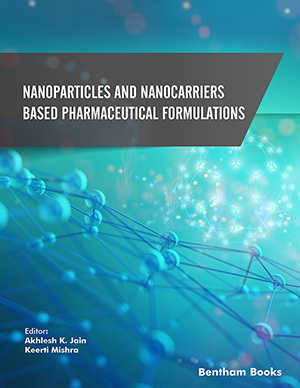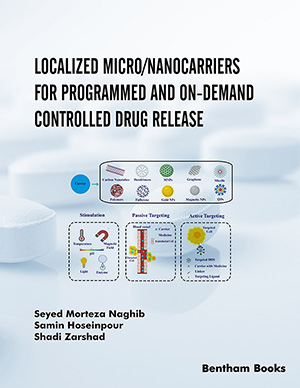
Abstract
CYPs are a large and diverse group of drug-metabolizing enzymes, which govern the metabolism of the majority of xenobiotic substances as well as endogenous components. The high inter-subject variability of CYP bioactivity has been largely attributed to gene polymorphism until the rapid development in epigenetics in the last decade that revealed another aspect of regulatory mechanism of drug-related genes. Epigenetics is the study of changes in gene expression or cellular phenotype that are not caused by changes in the underlying DNA sequence. The modification of histone proteins, together with DNA methylation and miRNAs, is the most extensively studied epigenetic mechanism in mammals. Recently, it has been demonstrated that alterations in epigenetic regulation occur during multiple pathological processes, especially carcinogenesis. As CYPs play an important role in carcinogen and anti-cancer drug biotransformation, epigenetic changes in CYP genes would lead to interindividual differences in drug responses. In this review, we provide an up-to-date summary of epigenetic studies on human CYPs, and discuss how such information could be integrated with clinical application.
Keywords: Adverse drug reactions, cytochrome P450, DNA methylation, epigenetics, histone modification, microRNA, personalized medicine.
Current Drug Metabolism
Title:Epigenetic Regulation of Cytochrome P450 Enzymes and Clinical Implication
Volume: 16 Issue: 2
Author(s): Xiaojing Tang and Shuqing Chen
Affiliation:
Keywords: Adverse drug reactions, cytochrome P450, DNA methylation, epigenetics, histone modification, microRNA, personalized medicine.
Abstract: CYPs are a large and diverse group of drug-metabolizing enzymes, which govern the metabolism of the majority of xenobiotic substances as well as endogenous components. The high inter-subject variability of CYP bioactivity has been largely attributed to gene polymorphism until the rapid development in epigenetics in the last decade that revealed another aspect of regulatory mechanism of drug-related genes. Epigenetics is the study of changes in gene expression or cellular phenotype that are not caused by changes in the underlying DNA sequence. The modification of histone proteins, together with DNA methylation and miRNAs, is the most extensively studied epigenetic mechanism in mammals. Recently, it has been demonstrated that alterations in epigenetic regulation occur during multiple pathological processes, especially carcinogenesis. As CYPs play an important role in carcinogen and anti-cancer drug biotransformation, epigenetic changes in CYP genes would lead to interindividual differences in drug responses. In this review, we provide an up-to-date summary of epigenetic studies on human CYPs, and discuss how such information could be integrated with clinical application.
Export Options
About this article
Cite this article as:
Tang Xiaojing and Chen Shuqing, Epigenetic Regulation of Cytochrome P450 Enzymes and Clinical Implication, Current Drug Metabolism 2015; 16 (2) . https://dx.doi.org/10.2174/138920021602150713114159
| DOI https://dx.doi.org/10.2174/138920021602150713114159 |
Print ISSN 1389-2002 |
| Publisher Name Bentham Science Publisher |
Online ISSN 1875-5453 |
Call for Papers in Thematic Issues
Impact of brain tissue binding and plasma protein binding of drugs in DMPK
The impression of brain tissue binding (BTB) or plasma protein binding (PPB) in Drug Metabolism and Pharmacokinetics is critical to understanding the distribution, efficacy, and potential toxicity of drugs that target the central nervous system (CNS). BTB and high PPB influence the distribution of drugs in the body and their ...read more
Metabolism-Mediated Xenobiotic Toxicity
Considering the potent modulation of biotransformation enzyme expression and activities by various therapeutic drugs and environmental chemicals, and the commonly combined exposure of humans to both drugs and the ever increasing environmental pollutants simultaneously, knowledge about the combined toxic effects by modulating biotransformation enzymes, such as P450s, UDP- glucuronosyltransferases, and ...read more
Safety evaluation of vaccine combination
Vaccine combination safety evaluation is a critical field within immunology and public health that focuses on assessing the safety and efficacy of combining different vaccines to maximize protection against various diseases while minimizing potential adverse effects. This process is significant because it ensures that vaccines can be administered together without ...read more
Therapeutic drug monitoring in clinical applications
Therapeutic Drug Monitoring (TDM) is a special issue focusing on the monitoring of drug concentrations in clinical therapy, aiming to optimize drug therapy, reduce drug interactions and ensure patient safety through quantitative analysis of drug concentrations in patient's; body fluids. TDM is of great significance in the current medical field, ...read more
Related Journals
 128
128 13
13
- Author Guidelines
- Graphical Abstracts
- Fabricating and Stating False Information
- Research Misconduct
- Post Publication Discussions and Corrections
- Publishing Ethics and Rectitude
- Increase Visibility of Your Article
- Archiving Policies
- Peer Review Workflow
- Order Your Article Before Print
- Promote Your Article
- Manuscript Transfer Facility
- Editorial Policies
- Allegations from Whistleblowers
- Announcements
Related Articles
-
Radiolabeled Imaging Probes Targeting Angiogenesis for Personalized Medicine
Current Pharmaceutical Design Hollow Gold Nanospheres: Growth Morphology, Composition and Absorption Characteristics
Micro and Nanosystems Targeting mTOR: Evaluating the Therapeutic Potential of Resveratrol for Cancer Treatment
Anti-Cancer Agents in Medicinal Chemistry Novel Fluorine Boron Hybrid Complex as Potential Antiproliferative Drugs on Colorectal Cancer Cell Line
Anti-Cancer Agents in Medicinal Chemistry Effects of As2O3 and Resveratrol on the Proliferation and Apoptosis of Colon Cancer Cells and the hERG-mediated Potential Mechanisms
Current Pharmaceutical Design Recent Innovations in Antibody-Mediated, Targeted Particulate Nanotechnology and Implications for Advanced Visualisation and Drug Delivery
Current Nanoscience Current Status of Gene Therapy for Hepatocellular Carcinoma, with a Focus on Gene Delivery Approaches
Current Gene Therapy Current Methods of the Circulating Tumor Cells (CTC) Analysis: A Brief Overview
Current Pharmaceutical Design Cancer: A Problem of Developmental Biology; Scientific Evidence for Reprogramming and Differentiation Therapy
Current Drug Targets 3D-QSAR Study of Flavone Derivatives as Inhibitors of HeLa Cervix Adenocarcinoma Cell Lines
Letters in Drug Design & Discovery Molecular Targets of Mesalazine in Colorectal Cancer
Current Cancer Therapy Reviews Transcriptomics in Cancer - Stages Toward Patents in Biomarkers
Recent Patents on Biomarkers Pharmacokinetic Profiles of Anticancer Herbal Medicines in Humans and the Clinical Implications
Current Medicinal Chemistry Melatonin, Autophagy and Intestinal Bowel Disease
Current Pharmaceutical Design Anti-Angiogenic Treatment for Exudative Age-Related Macular Degeneration: New Strategies are Underway
Current Angiogenesis (Discontinued) NBS1 Heterozygosity and Cancer Risk
Current Genomics Inhibitors of HDACs - Effective Drugs Against Cancer?
Current Cancer Drug Targets The Chemoprotective Potentials of Alpha-lipoic Acid against Cisplatin-induced Ototoxicity: A Systematic Review
Current Medicinal Chemistry Quantitative Analysis of Microbial Metabolism in the Human Large Intestine
Current Nutrition & Food Science Gene Silencing in the Development of Personalized Cancer Treatment: The Targets, the Agents and the Delivery Systems
Current Gene Therapy
















